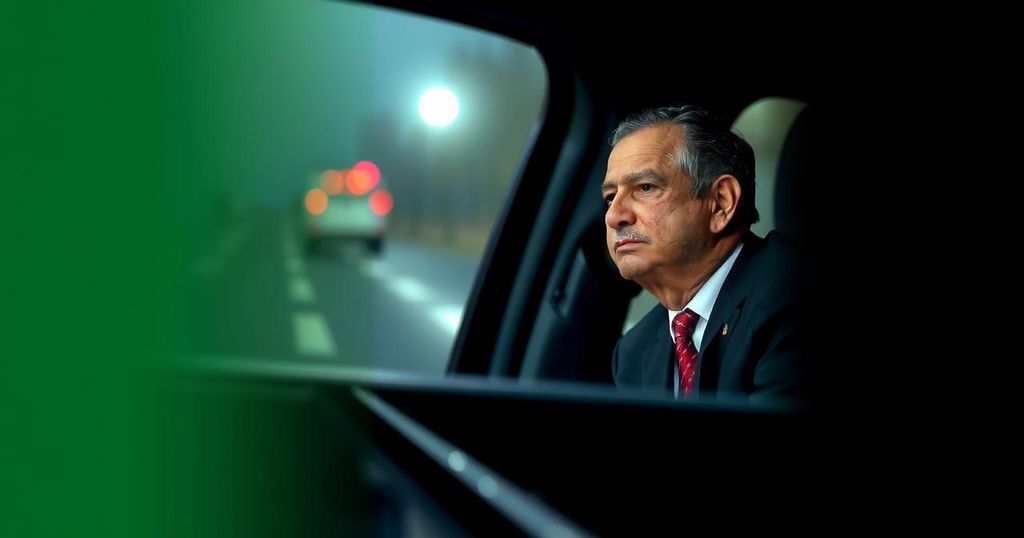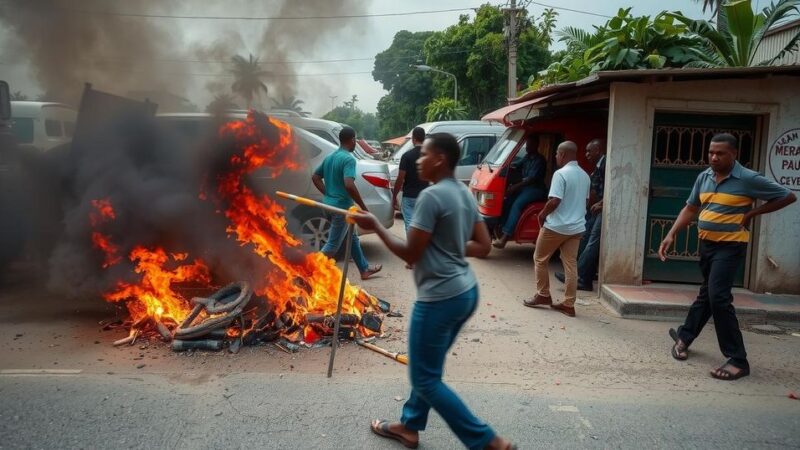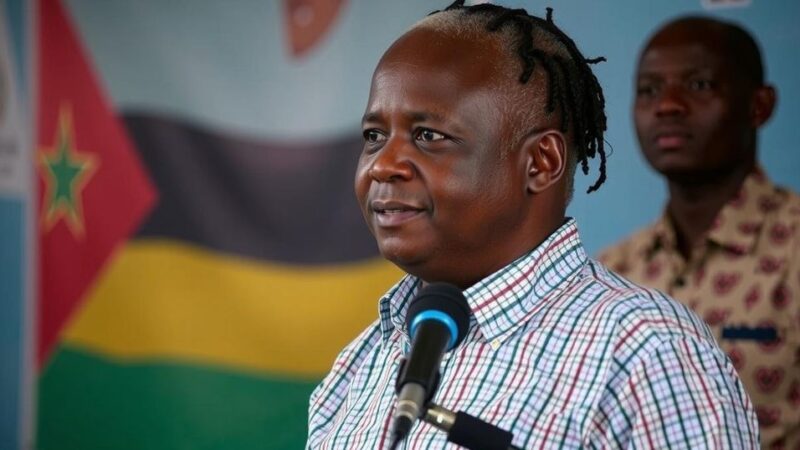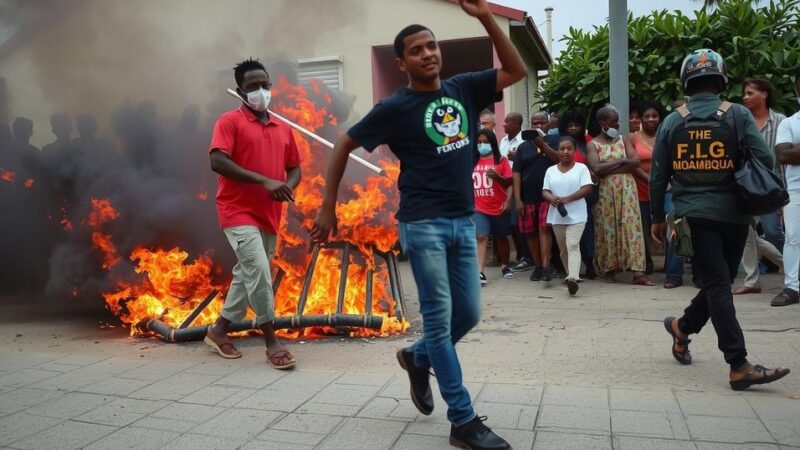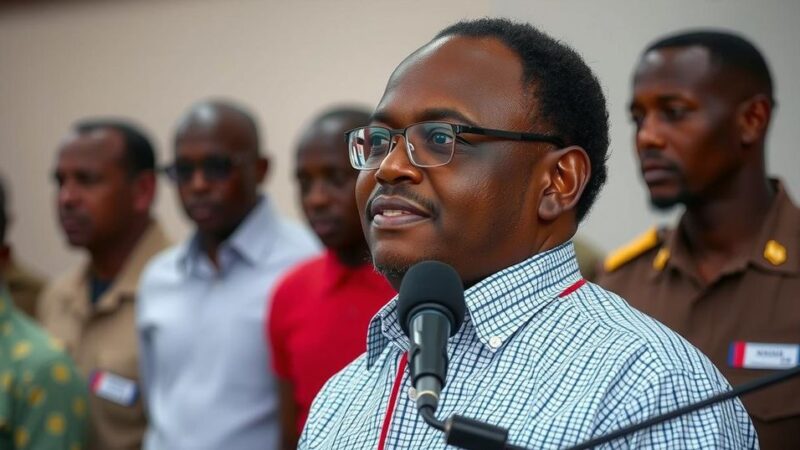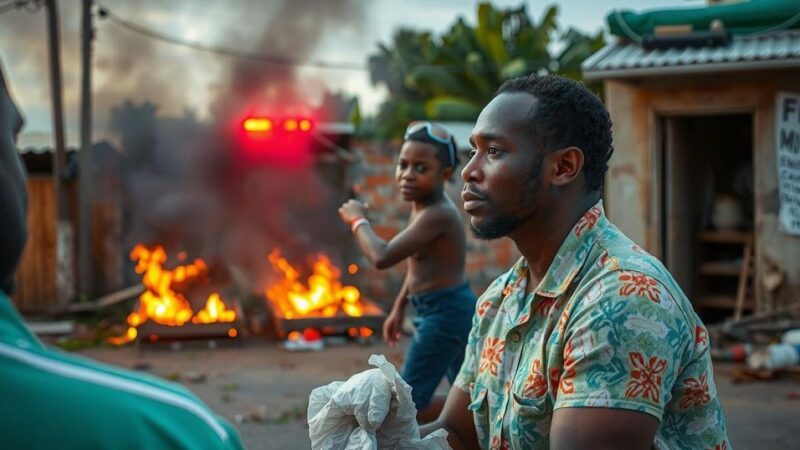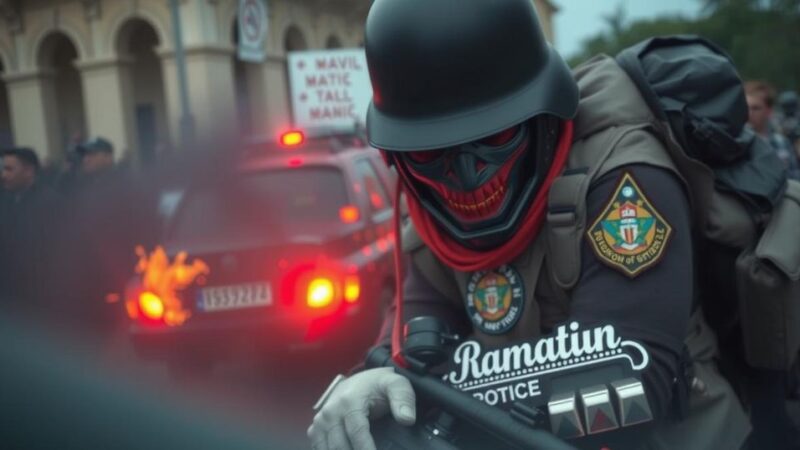Evo Morales, former president of Bolivia, claimed that shots were fired at his car in a reported assassination attempt amid rising political tensions. Morales asserted that two vehicles intercepted him and opened fire, nearly hitting him. The government announced it would investigate the incident, which comes during a time of protests and accusations aimed at Morales regarding stability and governance ahead of the 2025 elections.
Evo Morales, the former president of Bolivia, has reported that shots were fired at his vehicle, claiming this incident was an attempt on his life amid escalating political tensions within the ruling socialist party. Morales made these remarks during a recent radio interview, asserting that his car was intercepted by two vehicles which then opened fire, with one bullet narrowly missing his head. He expressed uncertainty over whether the assailants were military personnel or police officers. In an accompanying video posted on social media, Morales displayed bullet holes in his car’s windshield, indicating the severity of the attack. The incident occurs against a backdrop of rising unrest, with Morales’ supporters initiating road blockades throughout central Bolivia in response to government policies deemed oppressive. Roberto Rios, the Deputy Security Minister, announced that an investigation would be launched regarding the incident involving Morales, emphasizing the government’s responsibility to pursue any allegations, regardless of their validity. Meanwhile, tensions remain high as clashes have erupted between the government and Morales’ supporters, exacerbating an already fragile political landscape marked by economic difficulties. Moreover, Morales, Bolivia’s first Indigenous president, finds himself embroiled in several controversies, including accusations related to his personal conduct and an intensifying power struggle with current President Luis Arce, despite both being affiliated with the same political party, the Movement Toward Socialism (MAS). Morales has faced criticism for purportedly undermining the government amidst a situation of economic turmoil characterized by declining gas production and inflation. The government has taken a firm stance against Morales, condemning his actions and warning that some of his supporters are armed. This political environment continues to ferment unrest, revealing deep divisions within Bolivia’s political framework.
The current political landscape in Bolivia is marked by significant tensions between various factions of the ruling Movement Toward Socialism (MAS) party. Evo Morales, who served as president from 2006 until 2019, remains a prominent figure in opposition to current President Luis Arce, leading to a fierce struggle for power ahead of the 2025 presidential elections. Bolstered by his base of Indigenous support, Morales has been accused of destabilizing the government through sustained protests which have included road blockades, significantly affecting the nation’s economy. Alongside these tensions, Morales faces legal challenges related to allegations against him, which he refutes as political persecution.
In conclusion, the reported assassination attempt on Evo Morales signifies severe political distress in Bolivia, reflecting a broader power struggle within the ruling party as it heads into the 2025 elections. Morales’ claims of an attack, coupled with his ongoing legal controversies and the unrest provoked by his supporters, illustrate the complexities and challenges that define Bolivia’s current sociopolitical landscape. As investigations proceed, both political stability and public safety remain in question.
Original Source: www.aljazeera.com

